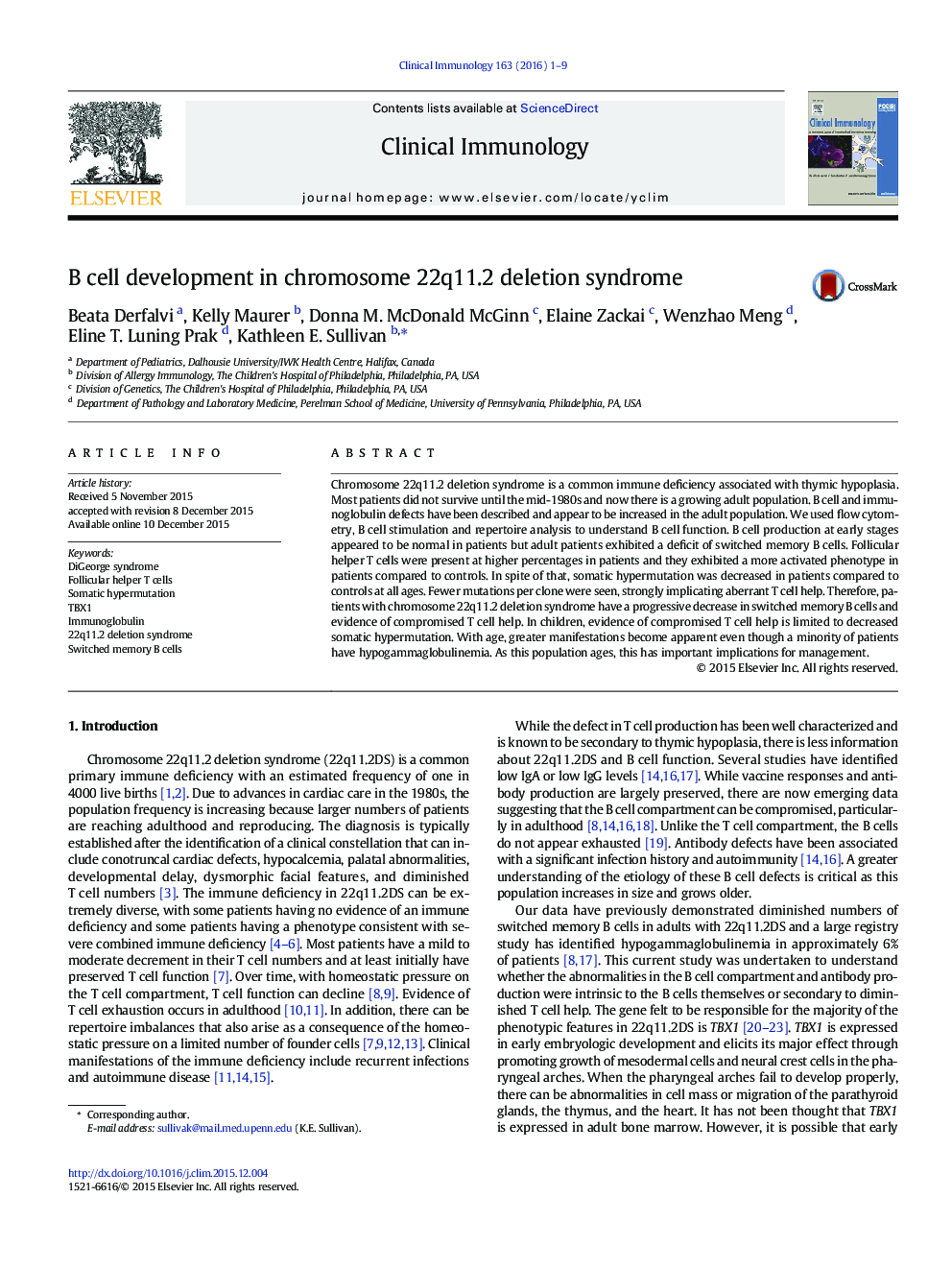| کد مقاله | کد نشریه | سال انتشار | مقاله انگلیسی | نسخه تمام متن |
|---|---|---|---|---|
| 6087261 | 1589426 | 2016 | 9 صفحه PDF | دانلود رایگان |

- This study identified significant B cell dysfunction.
- Diminished somatic hypermutation was seen.
- Fewer mutations per clone were seen, a feature strongly implicating impaired T cell help.
Chromosome 22q11.2 deletion syndrome is a common immune deficiency associated with thymic hypoplasia. Most patients did not survive until the mid-1980s and now there is a growing adult population. B cell and immunoglobulin defects have been described and appear to be increased in the adult population. We used flow cytometry, B cell stimulation and repertoire analysis to understand B cell function. B cell production at early stages appeared to be normal in patients but adult patients exhibited a deficit of switched memory B cells. Follicular helper T cells were present at higher percentages in patients and they exhibited a more activated phenotype in patients compared to controls. In spite of that, somatic hypermutation was decreased in patients compared to controls at all ages. Fewer mutations per clone were seen, strongly implicating aberrant T cell help. Therefore, patients with chromosome 22q11.2 deletion syndrome have a progressive decrease in switched memory B cells and evidence of compromised T cell help. In children, evidence of compromised T cell help is limited to decreased somatic hypermutation. With age, greater manifestations become apparent even though a minority of patients have hypogammaglobulinemia. As this population ages, this has important implications for management.
Journal: Clinical Immunology - Volume 163, February 2016, Pages 1-9